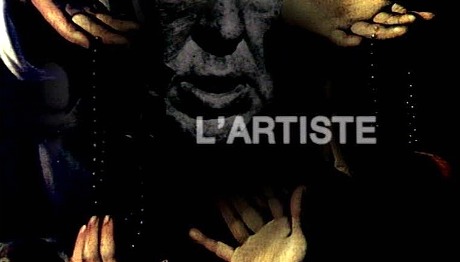Jean-Luc Godard was interviewed by Christian Jungen for NZZ last Sunday (11.7). The original interview is here. The edited translation is by Frederik Lang.

Jungen: Monsieur Godard, next Saturday [on 11.13], the Academy of Motion Picture Arts & Sciences will award you an Honorary Oscar for lifetime achievement. What does this mean to you?
Jean-Luc Godard: Nothing. If the Academy likes to do it, let them do it. But I think it’s strange. I asked myself: Which of my films have they seen? Do they actually know my films? The award is called The Governor’s Award. Does this mean that Schwarzenegger gives me the award?
Jungen: I beg your pardon? The most important film award means nothing to you?
Godard: No, it really doesn’t. Maybe it is a late acknowledgement that I — like Lafayette in the American War of Independence, in the uprising against the English — supported the beginning of a revolution.
Jungen: Which revolution?
Godard: In the 1950s, when I was a critic with Cahiers du Cinema, we loved independent films. We discovered that directors like Hitchcock, Welles and Hawks fought for artistic independence within the big studio machinery. After the war, we praised this — back then, a sacrilege for French film criticism. They sniffed at directors like Hitchcock and said ‘he’s just making commercial films.’ But for that alone, the Academy could have given the award to someone else.
Jungen: Now you are being modest. You and your colleagues developed the auteur theory that today structures the canon as works of directors.
Godard: The phrase ‘la politique des auteurs’ was made up by journalists. When Fran√ßois Truffaut wrote his first articles, he only said: The auteur of a film is not the screenplay writer — it is not the one who gets the story on paper who is important, but the one who stages it.
Jungen: In 1980, you revoked the auteur theory with a mea culpa. Why?
Godard: I suffered severely from the consequences, that they talked more about the author and not his works. That’s why I didn’t go to Cannes for the world premiere of my latest work, Film Socialisme. [Because] they would have only talked about me. But it was already like this during the Nouvelle Vague. We were no more than ten critics who spoke of films and not directors. By the way, this was a mistake: with Truffaut and Jacques Rivette, we only talked about cinema and not about ourselves. We didn’t know one another.
Jungen: Later on, you fell out with Truffaut. What was the reason?
Godard: Over time I realized that he made exactly the kind of films that we attacked: screenplay films! Truffaut’s works were not shaped by the camera but by the pen. The camera imitated what his pen had written.
Jungen: Back to the Oscar: Why don’t you attend the award ceremony?
Godard: I don’t have a visa for the US and I don’t want to apply for one. And I don’t want to fly for that long.
Jungen: Once again, there is a debate in Jewish newspapers about whether or not you are an anti-Semite. Does this hurt you?
Godard: That’s nonsense! What does ‘anti-Semite’ mean? All peoples of the Mediterranean were Semites. So anti-Semite means anti-Mediterranean. The expression was only applied to Jews after the Holocaust and WWII. It is inexact and means nothing.









